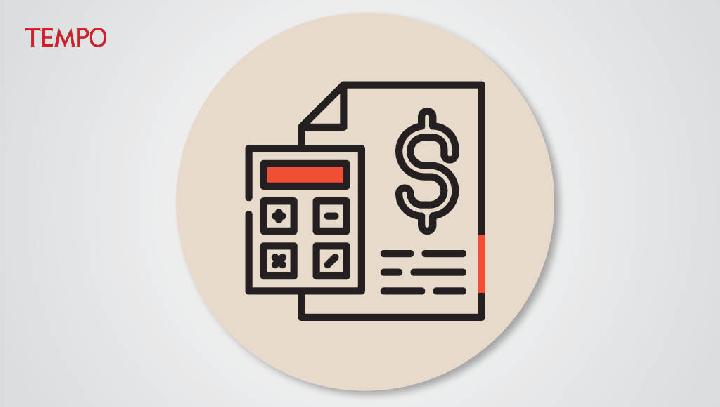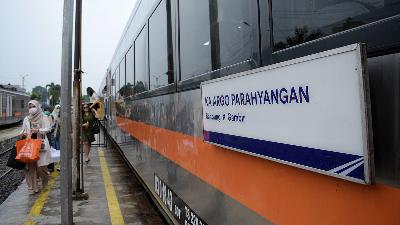The High-Speed Train Bottomless Pit
Monday, February 19, 2024
The finances of Indonesian railroad company KAI are suffering because of having to operate the Jakarta-Bandung high-speed train. A number of efforts to save it actually make matters worse.
arsip tempo : 174551943580.

AS expected, the Rp108 trillion Jakarta-Bandung high-speed train has now turned into a bottomless pit for Indonesia. Kereta Api Indonesia (KAI), which was ordered by the government to lead this strategic national project, has been overwhelmed by a never-ending series of problems. Unfortunately, every endeavor to save the company only leads to even more serious problems.
The move by KAI to reduce the frequency of the Argo Parahyangan trains at the end of January is one example. The Gambir Station to Bandung Station train now only runs six times a day, not 14. The KAI management claims that they took this decision because of the addition of two new trains, namely the Papandayan (Jakarta-Garut) and the Pangandaran (Jakarta-Banjar). But in fact, the reductions in the Argo Parahyangan service were because the performance of Whoosh—as the Jakarta Bandung hgh-speed train is known—has not improved.
From the time the fast train began commercial operations on October 17, 2023, until the beginning of February 2024, Kereta Cepat Indonesia China (KCIC) only sold 1.57 million tickets. This means that Whoosh carries an average of 15,000 passengers a day, far below the target of 30,000. KAI has been hemorrhaging money because it also needs to cover the operational costs of the consortium owned by Indonesia and China, which is now one of its subsidiaries. KAI also needs to repay most of the huge debts of the fast train project.
Rearranging train schedules appears to be a logical strategy. The reduction in the Argo Parahyangan service, especially at peak times, should force passengers to switch to Whoosh. But it seems that this scenario only existed in the imagination of KAI management. An investigation by this magazine discovered that some of the Argo Parahyangan passengers had switched to using minibuses on the Cipularang toll road. The mission to increase the quantity and quality of rail services to reduce congestion on the roads and emissions is now under threat of failing.
Argo Parahyangan, and its faithful passengers, are not the only victims of the Whoosh trap. At the end of January, KAI decided to buy three rail commuter coaches produced by CRRC Qingdao Sifang Co Ltd worth Rp783 billion to replace coaches used on the greater Jakarta electric line (KRL).
Kereta Commuter Indonesia, a KAI subsidiary, claims that the Chinese offer was more efficient than similar proposals from Japan and South Korea. Yet again, it is strongly suspected that this decision was part of the negotiations in order for KAI to obtain a guaranteed loan from the China Development Bank to cover the Whoosh cost overruns.
This decision has created a new problem. KAI will be saddled with paying for the maintenance and procurement of old equipment, given that the specification of commuter trains made in China is different from those used on KRL railroads. It is not impossible that the mountain of debt could result in a worsening of a currently good train service.
Is there a way out of this bottomless pit dug by President Joko Widodo? The answer is even more concerning. The main problem with Whoosh is the arbitrary decision to build an expensive fast train with a short route. Therefore, the government is planning to extend the track through the Jakarta-Surabaya fast train project. We are afraid that this new project that China has its eyes on will be a tomb for Indonesian rail services and the economy.











